
Ministry of Finance's Patriotic Emulation Congress - Photo: VGP/HT
State budget management achieved many important results.
Mr. Nguyen Minh Tan, Deputy Director of the State Budget Department (Ministry of Finance), said that in the 2021-2025 period, the world economy will face many complex fluctuations, with problems beyond forecast. The COVID-19 pandemic lasting from 2020 to the end of 2022 will cause severe socio-economic damage; international geopolitical tensions will escalate; global supply chains will be disrupted; energy and food prices will fluctuate sharply; strategic competition among major countries will become increasingly fierce, especially in trade, investment attraction, development and application of new technologies.
Fiscal and monetary policies in many countries have shifted from expansionary support for post-pandemic recovery to tightening to control inflation and ensure public debt safety. Natural disasters and climate change continue to develop complicatedly, negatively impacting global economic recovery.
In the country, implementing the Resolution of the 13th National Party Congress, under the leadership of the Party and the supervision of the National Assembly, the entire political system, the entire people and the business community have effectively controlled the epidemic, quickly moving to the stage of recovery and socio-economic development. In particular, the Government has focused on directing the review of shortcomings in the legal system, issuing many important policies such as streamlining the organizational apparatus, promoting decentralization, removing difficulties for backlogged projects, promoting the private economy, science and technology, innovation and digital transformation.
Thanks to that, the macro economy is basically stable, inflation is controlled, and growth remains at a relatively high level compared to the region and the world. The average growth rate in the 2021-2025 period is estimated at about 6.2%/year, and is expected to increase by 8% or more in 2025. Fiscal policy is coordinated synchronously with other macroeconomic policies; public investment is allocated and used more effectively; national defense and security are maintained; Vietnam's international position continues to be enhanced.
However, the economy still faces many challenges: US trade policy and reciprocal tariffs, slow-moving internal problems, negative impacts of natural disasters and climate change.

Mr. Nguyen Minh Tan, Deputy Director of the State Budget Department (Ministry of Finance) shares information - Photo: VGP/HT
Regarding state budget collection, the Ministry of Finance directed the good implementation of tax laws, strictly managed budget collection, focusing on key areas and areas such as land collection, real estate transfer, digital platform business, e-commerce, foreign suppliers without permanent establishments in Vietnam. The work of expanding the collection base, preventing revenue loss was promoted, along with inspection, examination and coordination to combat smuggling, trade fraud, and strictly handle violations.
To support businesses and people, the Ministry of Finance has advised competent authorities to issue policies on exemption, reduction, and extension of tax, fee, charge, and land rent payments with a scale of about VND 840 trillion for the 2021-2025 period (of which about VND 360 trillion is exempted and reduced; about VND 480 trillion is extended). Thanks to effective management and timely support policies, budget revenue for the years 2021-2024 has exceeded the estimate assigned by the National Assembly. Based on this result and the revenue target according to Resolution No. 01/NQ-CP and Resolution No. 25/NQ-CP, the budget revenue for the whole period is expected to reach VND 9.3 million billion, exceeding the target of VND 8.3 million billion; the budget mobilization rate is about 18.1% of GDP, of which tax and fee revenue is about 14.6% of GDP.
The Ministry of Finance continues to reform administrative procedures, modernize and apply information technology, electronic tax management; build a project for an electronic invoice data center, and apply artificial intelligence in data analysis.
On the other hand, for state budget expenditure, from the budget preparation stage, the Ministry of Finance coordinates with ministries, branches and localities to review and thoroughly save regular expenditures, cut unnecessary tasks, reduce conference, celebration and foreign trip expenditures, and reserve resources for development investment expenditures.
Allocating and using the budget closely follows the strategy, attaching accountability, increasing transparency, and empowering the budget-using units. When unexpected tasks arise, the Ministry requires reviewing and prioritizing expenditures according to urgency and feasibility.
The budget ensures national defense, security, social security, COVID-19 prevention and control, implementation of the socio-economic recovery and development program, apparatus reform, science and technology development, national digital transformation; free tuition for public school students from kindergarten to high school; ensuring salary reform, stabilizing the lives of officials and civil servants.
Regarding budget balance and public debt, based on the targets in Resolution No. 07-NQ/TW and Resolution No. 23/2021/QH15, the Ministry of Finance advises on flexible and effective management of budget deficit; in 2022-2023, the National Assembly allows an average budget deficit increase of 1-1.2% of GDP/year to support the Economic Recovery Program; in 2025, the budget deficit will be adjusted from 3.4% of GDP to about 4-4.5% of GDP to mobilize resources for development investment, with a growth target of 8% or more.
The average deficit in the 2021-2024 period is about 3% of GDP, a decrease compared to the 2016-2020 period. The Ministry proactively restructures public debt sustainably, reducing it from 42.7% of GDP at the end of 2021 to about 34.7% of GDP in 2024, striving for 35-36% of GDP in 2025.
The issuance of government bonds closely follows the progress of budget collection and disbursement, focusing on long terms (10-15 years), low mobilization costs, combined with effective use of state funds. Bond interest rates for the 2021-2024 period will remain at around 2.3-3.4%/year, much lower than the 2016-2020 period. The basic salary in the public sector will be adjusted from VND 1.49 million/month (2019) to VND 2.34 million/month from July 2024.
Key solutions, striving to complete the final year goals of the plan
According to the leader of the State Budget Department, with the key solutions for 2025, 2025 is the final year to implement the 5-year Socio-Economic Development Plan 2021-2025, and at the same time, to build the plan for the 2026-2030 period, the Ministry of Finance will identify key solutions.
In particular, the Ministry of Finance will closely monitor the domestic and international political and economic situation, especially the policies of the US and major partners, to promptly propose appropriate solutions.
Research and propose fiscal policies to support the economy, remove difficulties for businesses, especially those affected by the US's reciprocal tax policy; perfect institutions, promote digital transformation, strive to increase budget revenue by 10% in 2025 compared to 2024, with the mobilization rate reaching over 16% of GDP.
The Ministry of Finance will strictly manage budget expenditure within the budget estimate, save 10% of the increased regular expenditure for salary reform and 10% for investment in the Lao Cai - Hanoi - Hai Phong railway; ensure resources for key projects and exempt tuition fees for public school students. Promote 100% disbursement of public investment capital, prioritizing key projects, highways, inter-regional and coastal roads; promptly remove obstacles related to land and site clearance.
The Ministry of Finance flexibly manages budget deficit and public debt, taking advantage of space to mobilize resources for development investment, and ensuring timely payment of principal and interest.
The Ministry of Finance will complete the legal framework, monitor the financial market, securities, corporate bonds, strictly handle violations, promote fair competition; restructure and improve the efficiency of state-owned enterprises, accelerate equitization and divestment, and ensure budget revenue estimates.
Mr. Minh
Source: https://baochinhphu.vn/chinh-sach-tai-khoa-2021-2025-chu-dong-linh-hoat-hieu-qua-102250810151316282.htm



![[Photo] Hanoi morning of October 1: Prolonged flooding, people wade to work](https://vphoto.vietnam.vn/thumb/1200x675/vietnam/resource/IMAGE/2025/10/1/189be28938e3493fa26b2938efa2059e)
![[Photo] Keep your warehouse safe in all situations](https://vphoto.vietnam.vn/thumb/1200x675/vietnam/resource/IMAGE/2025/10/1/3eb4eceafe68497989865e7faa4e4d0e)

![[Photo] President of the Cuban National Assembly visits President Ho Chi Minh's Mausoleum](https://vphoto.vietnam.vn/thumb/1200x675/vietnam/resource/IMAGE/2025/10/1/39f1142310fc4dae9e3de4fcc9ac2ed0)







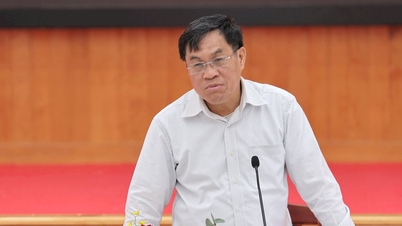


















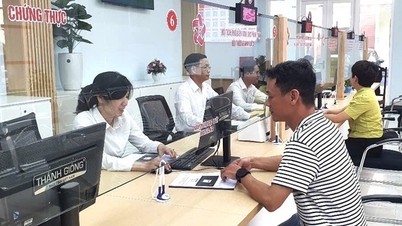











































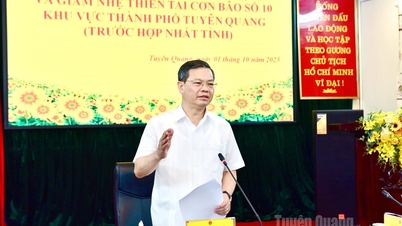



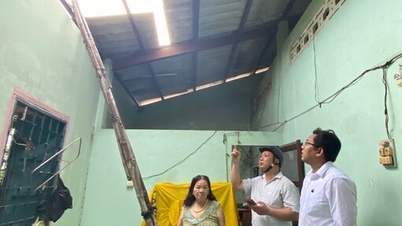





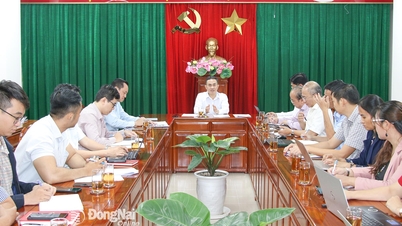













Comment (0)